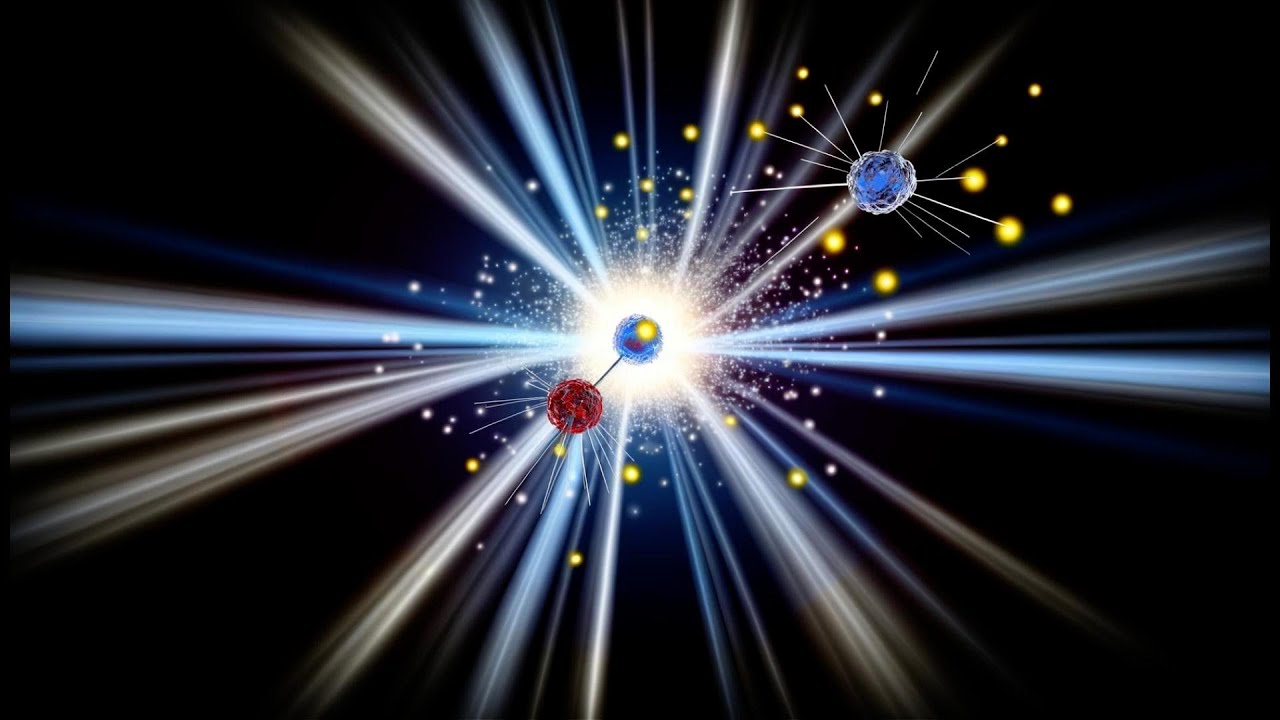
What is the Hadron epoch? The Hadron epoch is a fascinating period in the early universe's history, occurring just microseconds after the Big Bang. During this time, the universe was incredibly hot and dense, allowing quarks and gluons to form hadrons, such as protons and neutrons. These particles are the building blocks of atoms, which later formed stars, planets, and everything we see today. Understanding the Hadron epoch helps scientists piece together the puzzle of how the universe evolved from a hot, chaotic state to the structured cosmos we inhabit. Dive into these 29 facts to learn more about this critical phase in cosmic history.
What is the Hadron Epoch?
The Hadron Epoch is a fascinating period in the early universe's history. It occurred just moments after the Big Bang, when the universe was still incredibly hot and dense. This epoch is crucial for understanding how matter as we know it began to form.
- The Hadron Epoch started approximately 10^-6 seconds after the Big Bang.
- During this time, the universe's temperature was around 10^12 Kelvin.
- Hadrons, which include protons and neutrons, began to form during this epoch.
- The strong nuclear force played a significant role in binding quarks together to form hadrons.
- This epoch lasted until about 1 second after the Big Bang.
Formation of Hadrons
Hadrons are composite particles made of quarks. Understanding their formation helps us grasp the building blocks of matter.
- Quarks combined in groups of three to form baryons, such as protons and neutrons.
- Mesons, another type of hadron, consist of a quark and an antiquark pair.
- The formation of hadrons marked the end of the quark-gluon plasma state.
- The universe's cooling allowed quarks to bind together, forming stable hadrons.
- The strong nuclear force is the fundamental interaction responsible for holding quarks together.
Importance of the Hadron Epoch
This epoch set the stage for the universe's subsequent development, influencing the formation of atoms and eventually stars and galaxies.
- The Hadron Epoch's end marked the beginning of the Lepton Epoch.
- The formation of protons and neutrons during this time was crucial for the later formation of atomic nuclei.
- Without the Hadron Epoch, the universe would lack the necessary building blocks for matter.
- The interactions during this epoch determined the abundance of different types of hadrons.
- The balance between matter and antimatter was influenced by processes occurring during the Hadron Epoch.
Key Events During the Hadron Epoch
Several significant events took place during this brief but crucial period in the universe's history.
- The universe transitioned from a quark-gluon plasma to a hadron-dominated state.
- The rapid cooling of the universe allowed quarks to combine and form hadrons.
- The strong nuclear force became the dominant force at subatomic scales.
- The universe's expansion continued, but at a slower rate compared to the initial moments after the Big Bang.
- The formation of hadrons set the stage for the synthesis of light elements during the subsequent Big Bang nucleosynthesis.
The Role of Quarks and Gluons
Quarks and gluons are fundamental particles that played a pivotal role during the Hadron Epoch.
- Quarks are elementary particles that come in six flavors: up, down, charm, strange, top, and bottom.
- Gluons are the force carriers of the strong nuclear force, binding quarks together.
- The interactions between quarks and gluons were governed by quantum chromodynamics (QCD).
- The confinement of quarks within hadrons is a direct consequence of QCD.
- The properties of hadrons, such as mass and charge, are determined by the types and arrangements of quarks they contain.
The Transition to the Lepton Epoch
As the Hadron Epoch ended, the universe transitioned into the Lepton Epoch, marking another significant phase in its evolution.
- The Lepton Epoch began roughly 1 second after the Big Bang.
- During this time, leptons, such as electrons and neutrinos, became the dominant particles.
- The universe continued to cool, allowing for the eventual formation of neutral atoms.
- The interactions between hadrons and leptons during this transition influenced the universe's matter composition.
Understanding the Hadron Epoch provides valuable insights into the early universe's conditions and the fundamental processes that shaped its evolution.
The Final Moments of the Hadron Epoch
The Hadron Epoch was a brief, yet crucial period in the early universe. During this time, the universe cooled enough for quarks to combine into hadrons, including protons and neutrons. This set the stage for the formation of atomic nuclei in the subsequent Big Bang Nucleosynthesis. Without this epoch, the universe as we know it wouldn't exist.
Understanding these early moments helps scientists piece together the puzzle of our universe's origins. It also provides insights into the fundamental forces and particles that govern everything around us. The Hadron Epoch may have lasted just a fraction of a second, but its impact is still felt today.
So, next time you look up at the stars, remember that their story began in those first fleeting moments after the Big Bang. The universe's history is written in the particles that emerged during the Hadron Epoch.
Was this page helpful?
Our commitment to delivering trustworthy and engaging content is at the heart of what we do. Each fact on our site is contributed by real users like you, bringing a wealth of diverse insights and information. To ensure the highest standards of accuracy and reliability, our dedicated editors meticulously review each submission. This process guarantees that the facts we share are not only fascinating but also credible. Trust in our commitment to quality and authenticity as you explore and learn with us.
